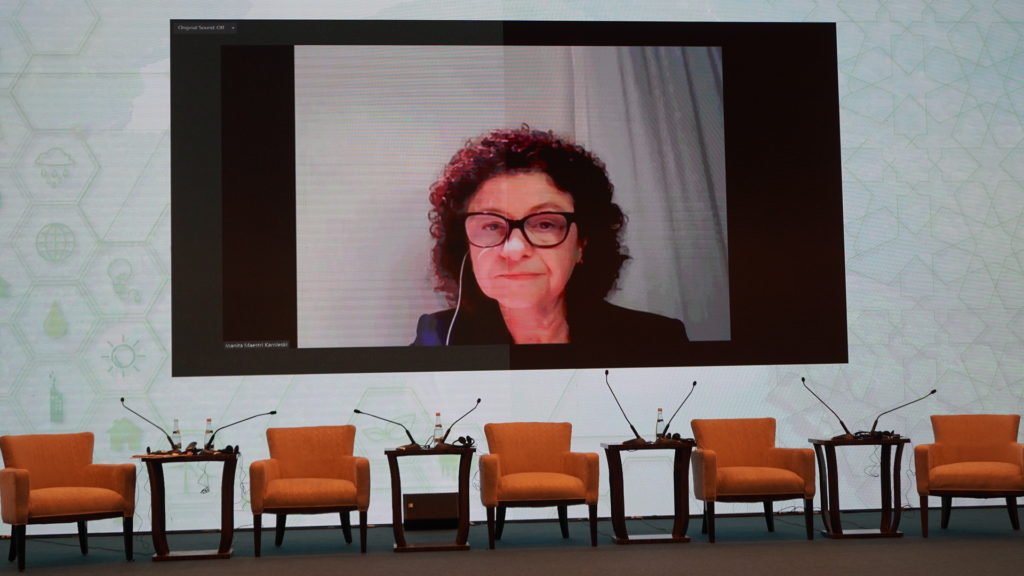São Paulo – Brazilian meatpacker JBS had committed to raise BRL 50 million (USD 9 million) for the JBS Fund for the Amazon in its first five years. The goal now is reaching BRL 1 billion (USD 186 million) by 2030. So said the president of the JBS Fund for the Amazon, Joanita Maestri Karoleski (pictured), who closed the Brazil-UAE: Amazon Economic Sustainability Forum on Sunday (3) in Dubai.
Three pillars guide the initiative: forest conservation and restoration, socioeconomic development of the communities, and scientific and technological development. To implement activities, JBS listed promising sectors in the Amazon such as açaí, nuts, fish, and cacao.
“We’re carrying out a study to identify bottlenecks and opportunities. The first project is RestaurAmazonia, which combines cacao, forest and livestock. The second is the açaí industry, and we want to build a biofactory. The main goal is increasing value. The whole point is being able to process and deliver a higher value-added product, thus increasing the producers’ income as well as the women’s participation. We invest in a family school to train the youth,” said Karoleski, who participated in the event remotely.
The third project of the Fund is focused on the pirarucu industry. “The goal is creating added value and working on food security issues. The project has been developed for two years and features sustainable management of the fish, which is not raised in captivity and is audited by [Brazil’s environmental authority] Ibama,” she said.
Another goal is improving access to credit for small farmers and entrepreneurs. Startup acceleration is also on the agenda. “It’s an investment of approximately BRL 400,000 (USD 75,000) in each startup aiming at fostering new businesses that respect biodiversity, and we are looking for professionals from the region,” she finished.
The Fund works with Brazilian state-run agricultural research agency Embrapa, too. A partnership signed three years ago focuses on cosmetic and plant-based food technology.
The Fund meets another goal of JBS’s. The company has a plan called NET Zero for becoming carbon neutral. “It isn’t just a consumer demand but a reality demand. Therefore, JBS has committed to become carbon neutral by 2040,” she said.
Opportunities
Arab Brazilian Chamber of Commerce (ABCC) secretary-general and CEO Tamer Mansour thanked the participation of panelists, the Brazilian government, the ABCC members and the audience that watched the forum. Also closing the event, UAE Business Women Council chair Farida Abdullah Al Awathi spoke. “Today was a great day as we’ve learned a lot on the business opportunities between the UAE and Brazil. I believe that now is the time to take part in this growth opportunities,” she finished.
The forum was organized by the ABCC in partnership with the Ministry of Economy of the United Arab Emirates, the Federation of UAE Chambers of Commerce and Industry, the Embassy of Brazil in the UAE, and Dubai Chamber. It took place in Conrad Hotel in Dubai, in parallel to Expo 2020, which opened to the public last Friday (1).
Read more on the Brazil – UAE Amazon Economic Sustainability Forum:
- Brazil, UAE could grow together through innovation
- Sharjah seeks investments in green technology
- Economic development linked with sustainability a challenge
- Brazil – UAE partnership overcame COVID’s challenges
Watch the forum on YouTube:
Translated by Guilherme Miranda




